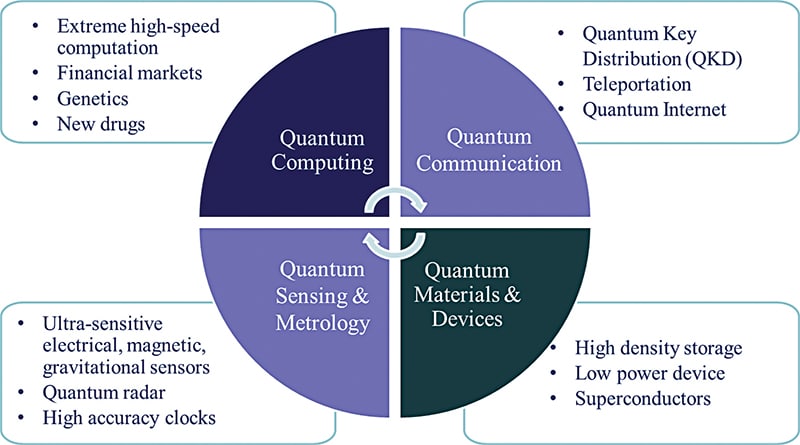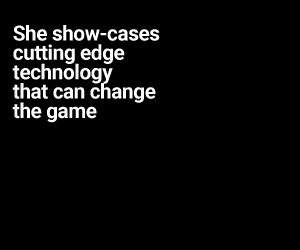Quantum tech is no longer science fiction. From computing to cryptography, here’s how India is gearing up for a quantum-powered future.
The United Nations has designated 2025 as the International Year of Quantum Science and Technology (IYQ 2025) to mark 100 years of quantum mechanics and spotlight its transformative impact. A series of global events will showcase how quantum technologies are revolutionising secure communication, advanced computing, ultra-precise sensing, and metrology. As the world steps into the era of the Second Quantum Revolution—or Quantum 2.0—breakthroughs in quantum computing, cryptography, and communication are poised to reshape industries and tackle critical global challenges.
Amid shifting geopolitical dynamics, digital sovereignty has become a strategic priority. Nations leading in quantum technologies are expected to gain a decisive edge. Global powers are investing heavily to stay ahead in the innovation race. According to Qureca, worldwide investments in quantum science and technology have surpassed $40 billion, with China alone contributing around $15 billion. McKinsey & Company’s 2023 Quantum Technology Monitor Report projects the market will reach $106 billion by 2040. Quantum science is set to unlock new frontiers—redefining innovation and placing itself at the core of the next technological revolution.

First quantum revolution
The first quantum revolution, which began in the early 20th century, laid the foundation for modern physics by introducing the principles of quantum mechanics. This era was marked by groundbreaking discoveries such as Max Planck’s quantum hypothesis, Einstein’s explanation of the photoelectric effect, and Bohr’s atomic model, all of which challenged classical physics. The development of wave-particle duality, Heisenberg’s uncertainty principle, and quantum electrodynamics further expanded the understanding of the microscopic world. These theoretical advancements led to transformative technologies, including transistors, lasers, atomic clocks, and semiconductors, which became the backbone of modern electronics, computing, and communication.
India has a distinguished legacy in quantum science and technology, with foundational contributions that have shaped global advancements in the field. Since the early 20th century, the nation has been at the cutting edge of both theoretical and experimental research in quantum mechanics. In the 1920s, the esteemed physicist Satyendra Nath Bose made groundbreaking contributions, establishing the basis for Bose-Einstein statistics and the Bose-Einstein condensate theory. Additionally, C.V. Raman, who was awarded the Nobel Prize in 1930 for his pioneering work on light scattering, also laid down fundamental principles in the field. These contributions have significantly advanced the global understanding of quantum mechanics.
Quantum 2.0
The Second Quantum Revolution, unfolding in the 21st century, harnesses principles such as superposition, entanglement, and coherence to drive innovation. While the first revolution focused on understanding quantum mechanics, this new phase applies those phenomena to four major areas: quantum computing, quantum communication, quantum sensing and metrology, and quantum materials and devices.
Quantum computing is poised to solve complex problems exponentially faster than classical computers, while quantum cryptography offers unparalleled security for data transmission. Advancements in quantum sensing and metrology are enabling ultra-precise measurements, crucial for fields such as healthcare, defence, and navigation. Progress in quantum materials and devices will drive innovation across the other three verticals. Additionally, quantum communication networks are emerging as the future of secure information exchange. These breakthroughs are shaping the future of science, industry, and national security, making quantum technology a key area of global research and investment.
Core principles of quantum mechanics
OOPS! THIS IS EFY PRIME CONTENT...
which means that you need to be an EFY PRIME subscriber to read it.
EFY PRIME content is our best content. Hence, you need to make a small investment to access all of our content including EFY Prime content.
If you're already an EFY PRIME member, feel free to login below.
Else, CLICK HERE to invest in an EFY Prime account and become our VIP customer who can access all our content, and that too without the clutter of ads!
BENEFITS OF EFY PRIME MEMBERSHIP:
(1) Zero Clutter AD free experience
(2) Super-fast user experience
(3) Focussed reading experience with no distractions
(4) Access to all our content including our Best-of-Best which is EFY Prime







